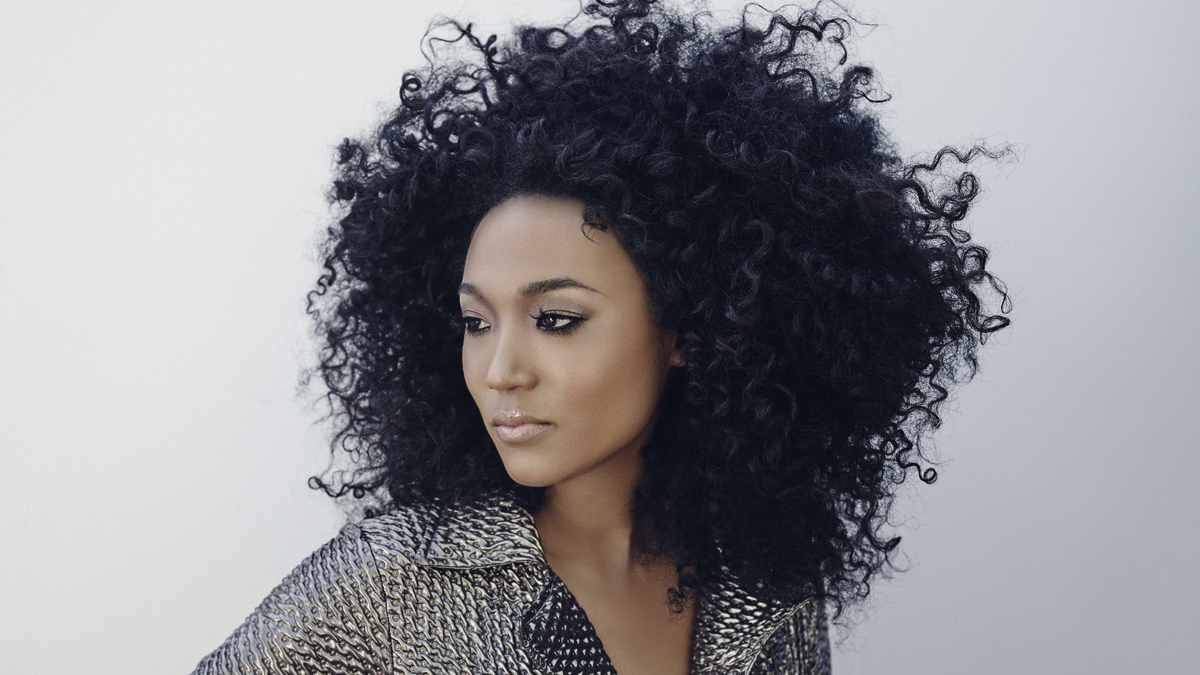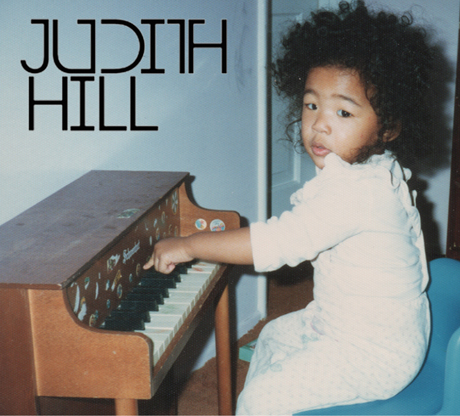Soul star Judith Hill lifts the lid on Prince collaboration
Powerhouse vocalist on creating her debut album with Prince and working with Michael Jackson

Judith Hill has had no ordinary career. The Los Angeles native of Japanese/African descent has provided background vocals to a variety of industry legends including Elton John, Stevie Wonder and Ringo Starr.
In 2009, Hill was selected as Michael Jackson's duet partner on the late singer's This Is It concert tour, and received worldwide attention for her performance of Heal the World at Jackson's memorial service.
While looking to step out of the shadows with her own solo album, Hill was summoned by another pop legend, Prince. Much to Hill's surprise, initial jamming sessions at Paisley Park turned into a full blown creative partnership, resulting in the album, Back in Time.
You took a degree in music composition; can we therefore take it you had your heart set on a career in the industry from an early age?
"Yes, it was amazing. I learned so much about music composition and how to arrange and compose for orchestras and big bands. It was four years of writing for strings, the history of music and learning about all the different genres.
"My particular degree was more focused on composition and the history of it, and a lot of it was handwritten, then I would use the music notation software 'Finale' to print it up on the computer. That was definitely a very exciting time for me, because I was able to pick up on all those tools and use them later in my career."
You have a lot of experience singing backing vocals for various high-profile artists, but do you still get intimidated when confronted by somebody like Prince?
Get the MusicRadar Newsletter
Want all the hottest music and gear news, reviews, deals, features and more, direct to your inbox? Sign up here.
"He's so incredible. Whenever I'm in his presence and we work on something, I feel that I'm intimidated in the sense that I have to bring the best out of myself. It's really good for me because it's very challenging but it's also helped me to grow so much as a performer and a producer. It's one of those good boot camps you go to where you're more than happy to do the challenge."
Prince has a lot of really great equipment that worked perfectly for my voice and the sound that I wanted. I'd used tape in the past when I was younger, before everything turned digital, so it was nice to go back to that format because it brings out a certain quality."
What did you learn the most from working with the great man?
"I have a higher vision for myself now than I did before. I can see that there is a higher level of excellence that I can achieve, and I think that's a direct result of being around Prince and seeing how excellent he is when he's working in the studio. So, I pushed myself, and seeing the growth in me in such a short space of time has been encouraging.
"It's something that other people have noticed as well, but I would say he's helped me the most when it comes to live performance. We've spent a lot of time rehearsing and working in that area. We've already done some shows together and I'm sure we'll do some more. That's been the most inspiring part of it, bringing the album to life on stage."
You've worked with Michael Jackson and Prince, do you see any similarities between the two - something that characterises what makes them unique?
"Their sense of messaging and what they want to achieve is so clear in their heads. They're in this other world, and when you're around them you just kind of get lost in that world - in a good way - and become a part of it.
"They have different styles. Michaels' style was very much about having a vision for exactly how he wanted the live show to go and how he would rehearse it with all the different dancers. It was very much a big production, which Prince has also done, but in my time working with him it's been much more about the approach from a musician's point of view - being a musician, coming in and jamming for hours and building a bond through those jamming sessions. But getting to experience both styles has been very, very cool."
So how did Prince get involved in the recording of your debut album?
"Well a lot of it was already written. I was down at Paisley Park and just jammed with him, so he got to hear a lot of the songs and came up with some cool arrangements. It just happened organically, whereby we recorded the arrangements with live musicians.
"I played on it and he played on it - a lot them were done in one take, recording them as a jam. We ended up keeping those versions and it became the record."
Did those ideas develop far beyond what you had imagined when you originally wrote the material?
"Well, when I originally wrote the material the songs were in different forms. The songs were already produced and done up. For example, there was a song called Beautiful Life that I wrote and I just had a set of chords that I'd used to perform, play and sing that song, but Prince suggested that I should picture the song in a big stadium. He told me to change the chords to major chords, which opened up the whole thing and brought a kind of simplicity to it.
"What I learned about working with him is that he writes and produces every song as if he was going to perform it live in a big show. So with that in mind, we recorded the songs in that range and it was cool to see him take some of the songs I already had and make them bigger."
How did the songs change from a lyrical and vocal perspective?
"A lot of the songs stayed as I wrote them, but for some of them we did rewrite the lyrics or wrote them together from scratch, so it was a combination from that point of view. In terms of my vocal, I've had vocal problems in the past; it's a very delicate instrument and you have to take care of it."
Does Prince have everything you need to get the best out yourself in the studio?
"Well this album was special because we used two-inch tape for everything and also a lot of analogue equipment. Prince has a lot of really great equipment that worked perfectly for my voice and the sound that I wanted. I'd used tape in the past when I was younger, before everything turned digital, so it was nice to go back to that format because it brings out a certain quality.
"I think there's a crunch and warmth to it, a more natural sound, whereas with digital there is more clarity and gloss. I think for me, being a soul singer, and for the sound that I wanted, it was really nice to get that punch to it because the way it was recorded brought out that old school vibe that I really wanted."
Were you also heavily involved in the production and mixing of the album?
"A lot of the tracks were originally recorded with Logitech or Pro Tools, or a combination of the two, to get the sound that I wanted. The actual making of the album happened very quickly and probably didn't last any longer than two weeks."
"We did one day of recording and then I came back a couple of months later and finished up the record; it was very quick and, yes, I was involved in the whole mixing process."
Angel in the Dark is a great track, but has more of an electronic sound than others on the album.What was the process behind that one?
"Yeah, for that song we just kind of kept a lot of what I had originally written. It felt good in that format and we didn't feel that it needed to be recorded like the others."
Whenever I'm in his [Prince] presence and we work on something, I feel that I'm intimidated in the sense that I have to bring the best out of myself."
What was the idea behind making Back in Time a free download in March before re-releasing it now?
"I wanted to do something unconventional in the way it was marketed and be creative in the business world as well as the music world. We had this idea of going with Live Nation and surprising the fans with a record.
"It was fun to do that, but I think a lot of people would still love to have a physical copy of the album or one that isn't an MP3 format. So there's still a lot of people that are very excited about the release."
What do you think you learned the most from making the album?
"Well, I learned a lot about my roots and just going back to doing what I love the most. I'm also really excited to tour the record now that it's finally coming out and to be able to promote it in a live setting for the rest of the year and into next year."

The new Judith Hill album 'Back in Time' is out now on NPG Records. For more information you can follow Judith on Facebook, or Twitter.


“Every note counts and fits perfectly”: Kirk Hammett names his best Metallica solo – and no, it’s not One or Master Of Puppets
“I can write anything... Just tell me what you want. You want death metal in C? Okay, here it is. A little country and western? Reggae, blues, whatever”: Yngwie Malmsteen on classical epiphanies, modern art and why he embraces the cliff edge









